
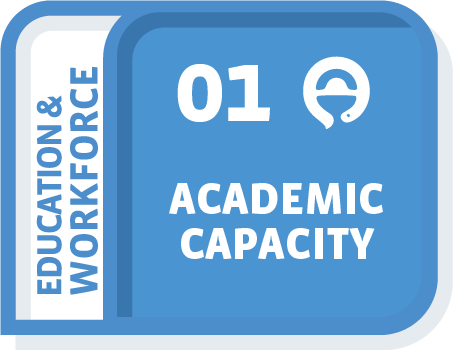
FIP Development Goal 1 Education & Workforce Element
Globally, we will have:
Engagement with pharmaceutical higher education development policies and ready access to leaders in all sectors of pharmacy practice and pharmaceutical science in order to support supply-side workforce development agendas.
Mechanisms
FIP Development Goal 1 Practice Element
Globally, we will have:
Capacity for in-practice training and development linked with education providers; pathways for professional advancement from foundation training through to advanced practice and/or specialisation.
Mechanisms
FIP Development Goal 1 Science Element
Globally, we will have:
Institutional academic capacity to deliver quality pharmaceutical sciences education and training for pharmacists and pharmaceutical scientists who contribute to patient care, new discoveries and development, clinical utilisation, marketing regulations, and the economic assessment of health products.
Mechanisms
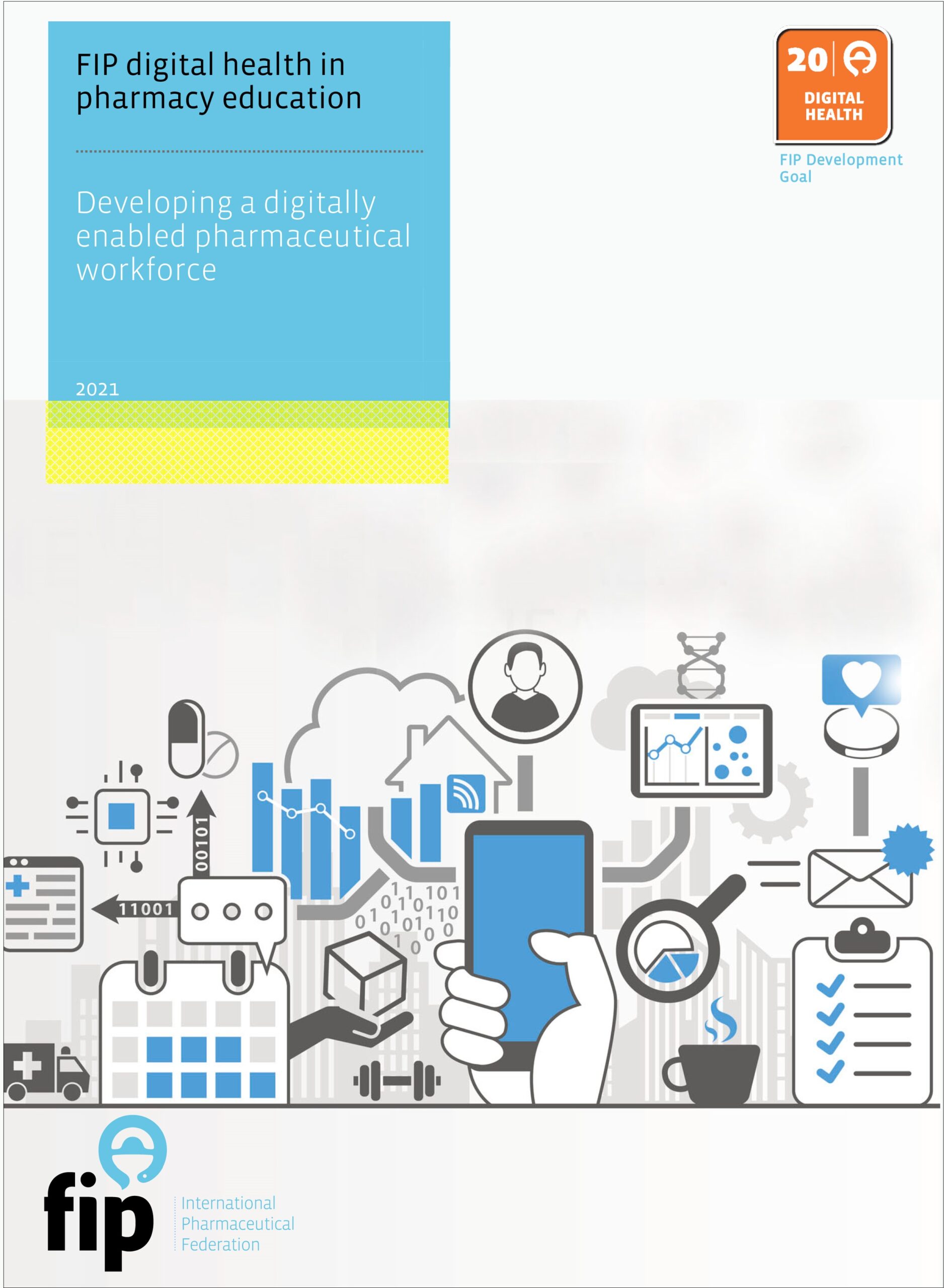
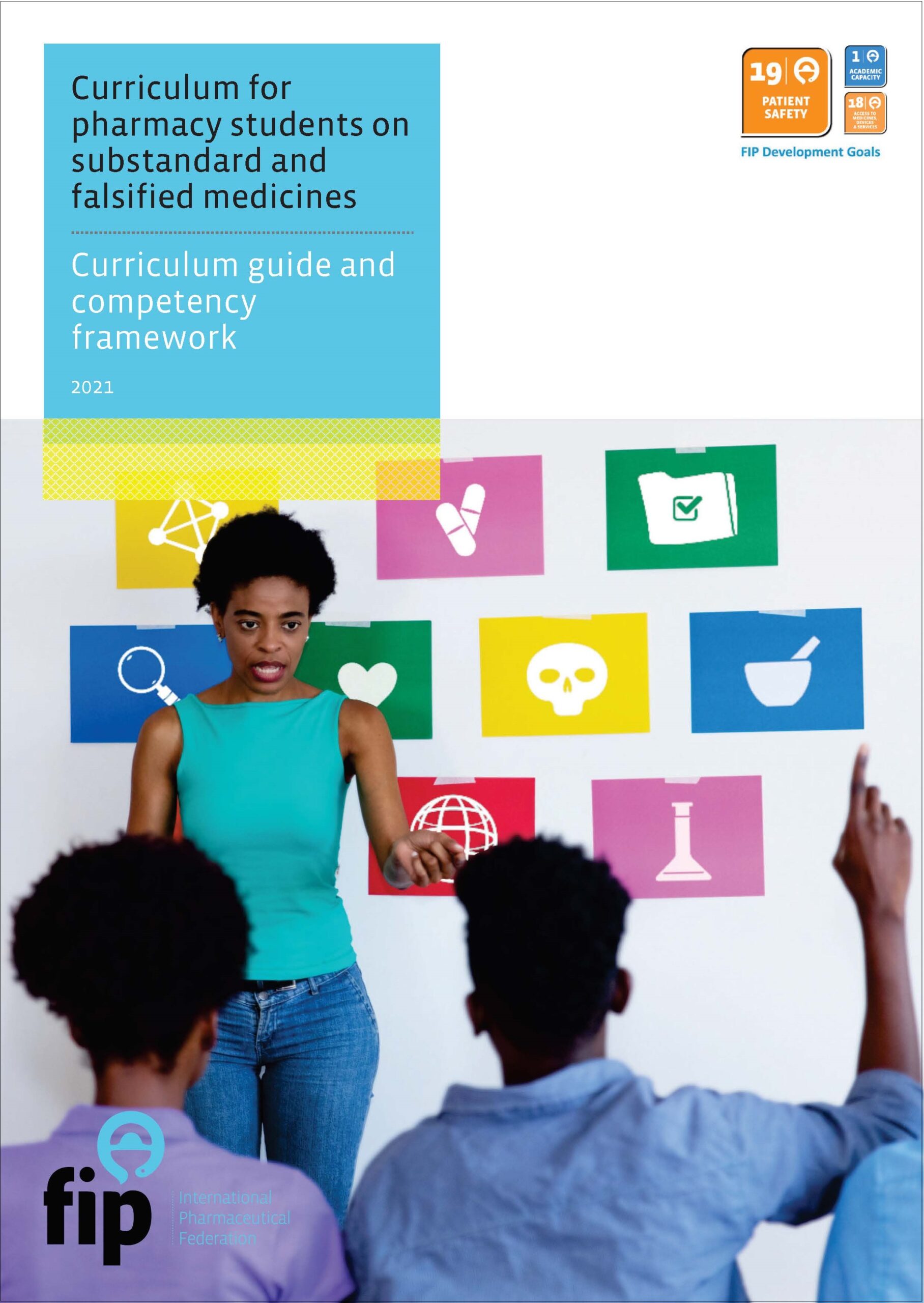
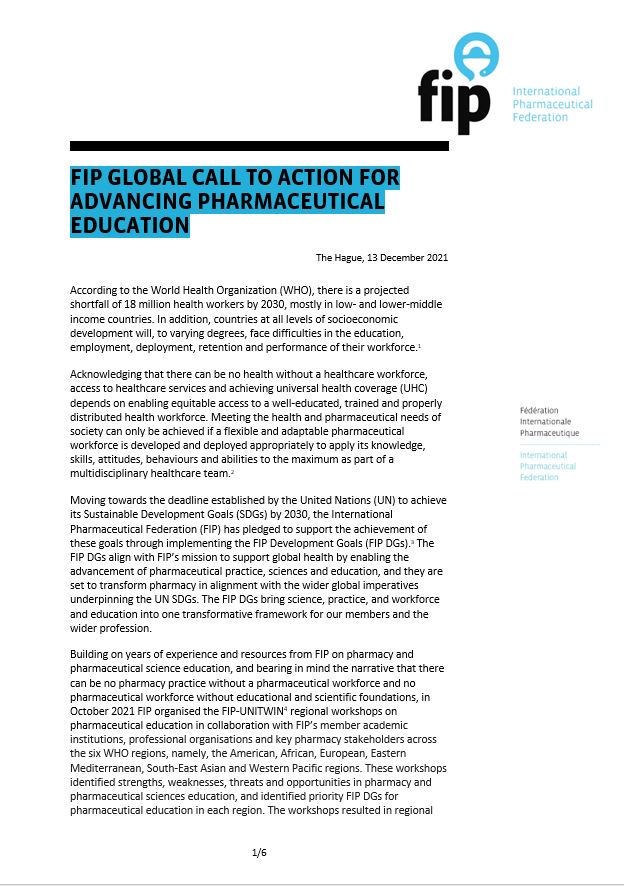
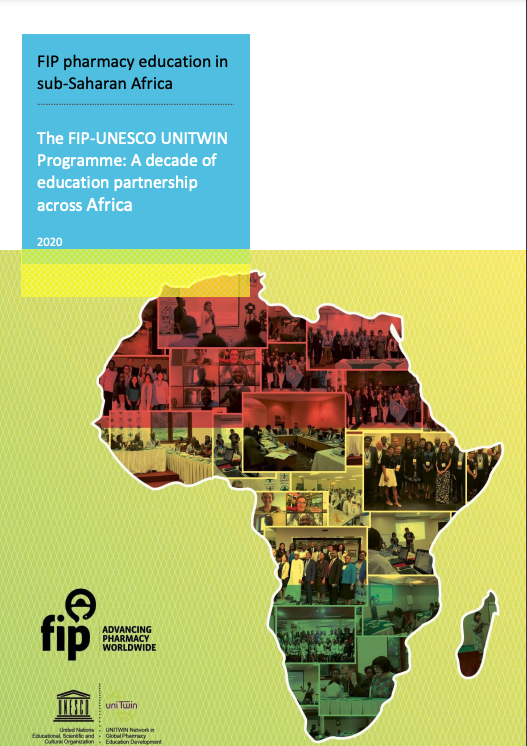
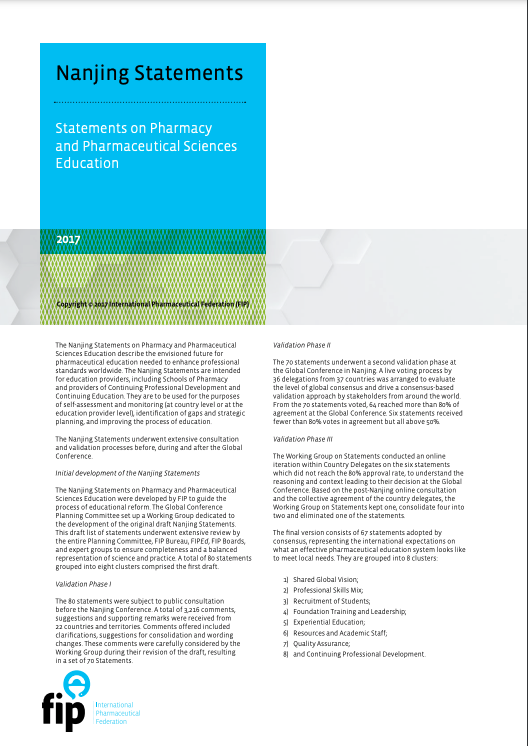
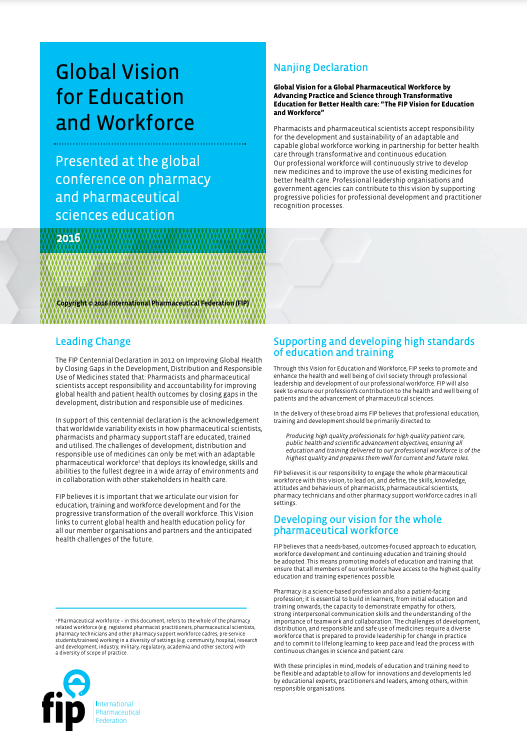
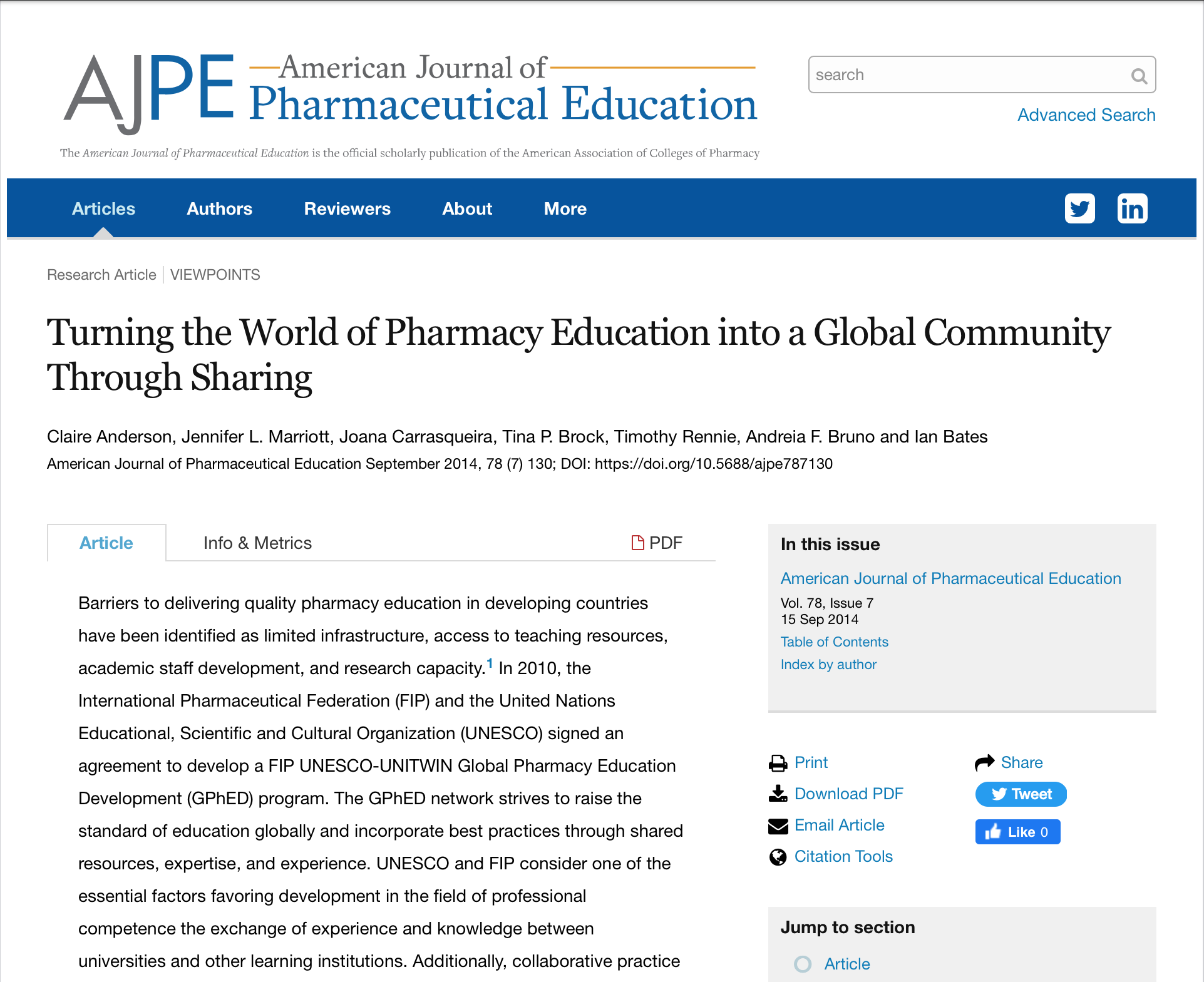
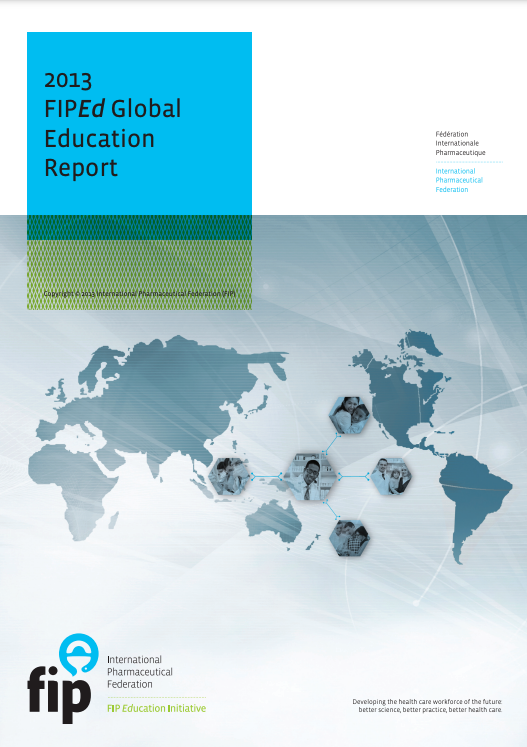
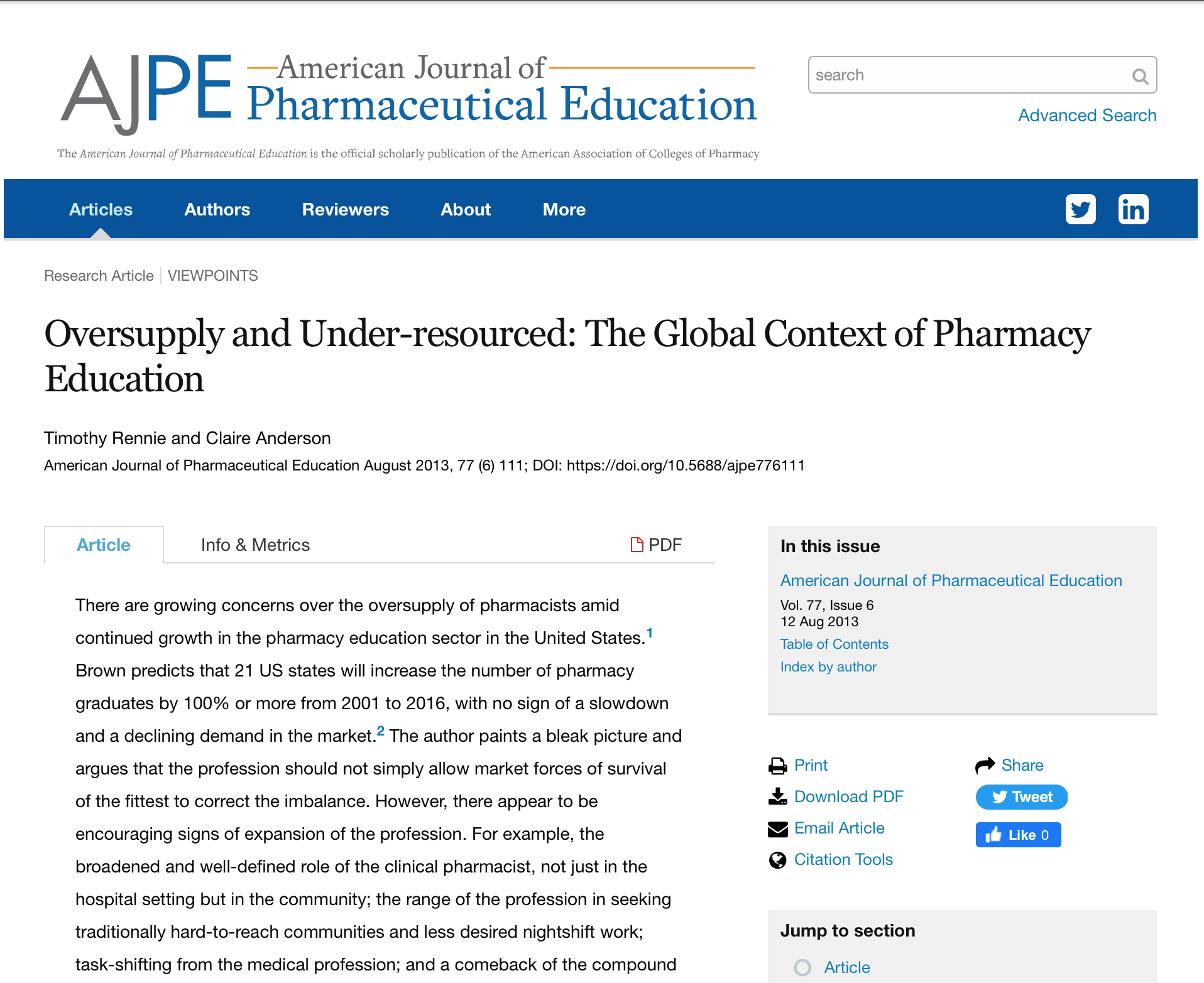
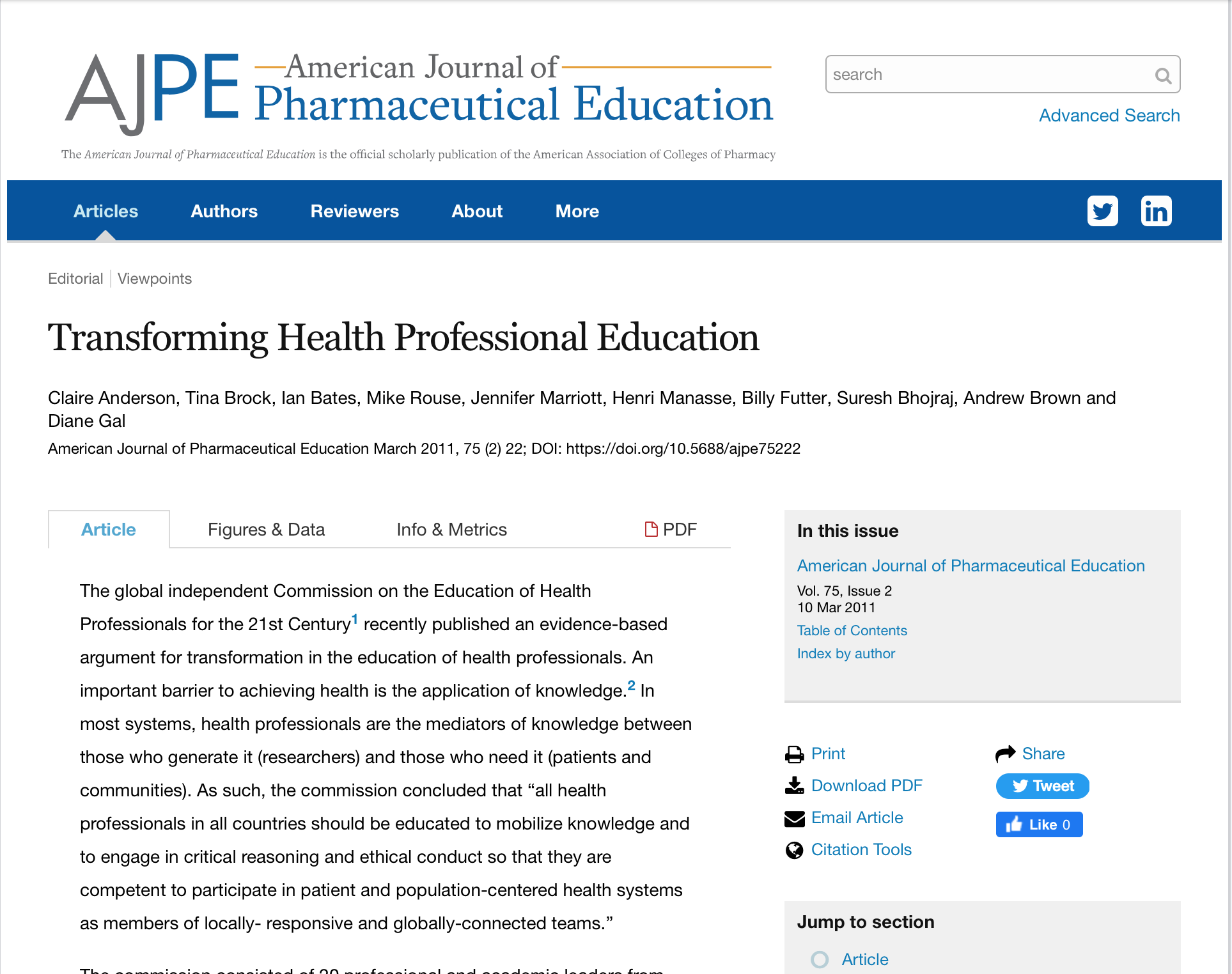
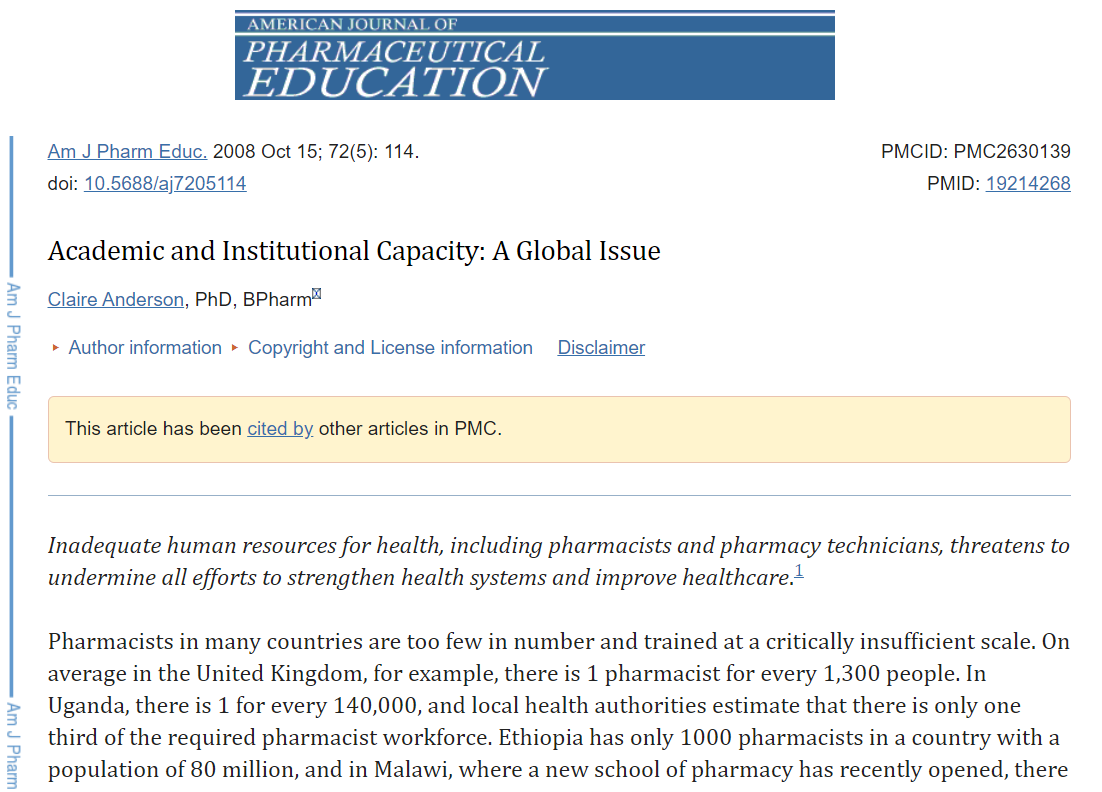
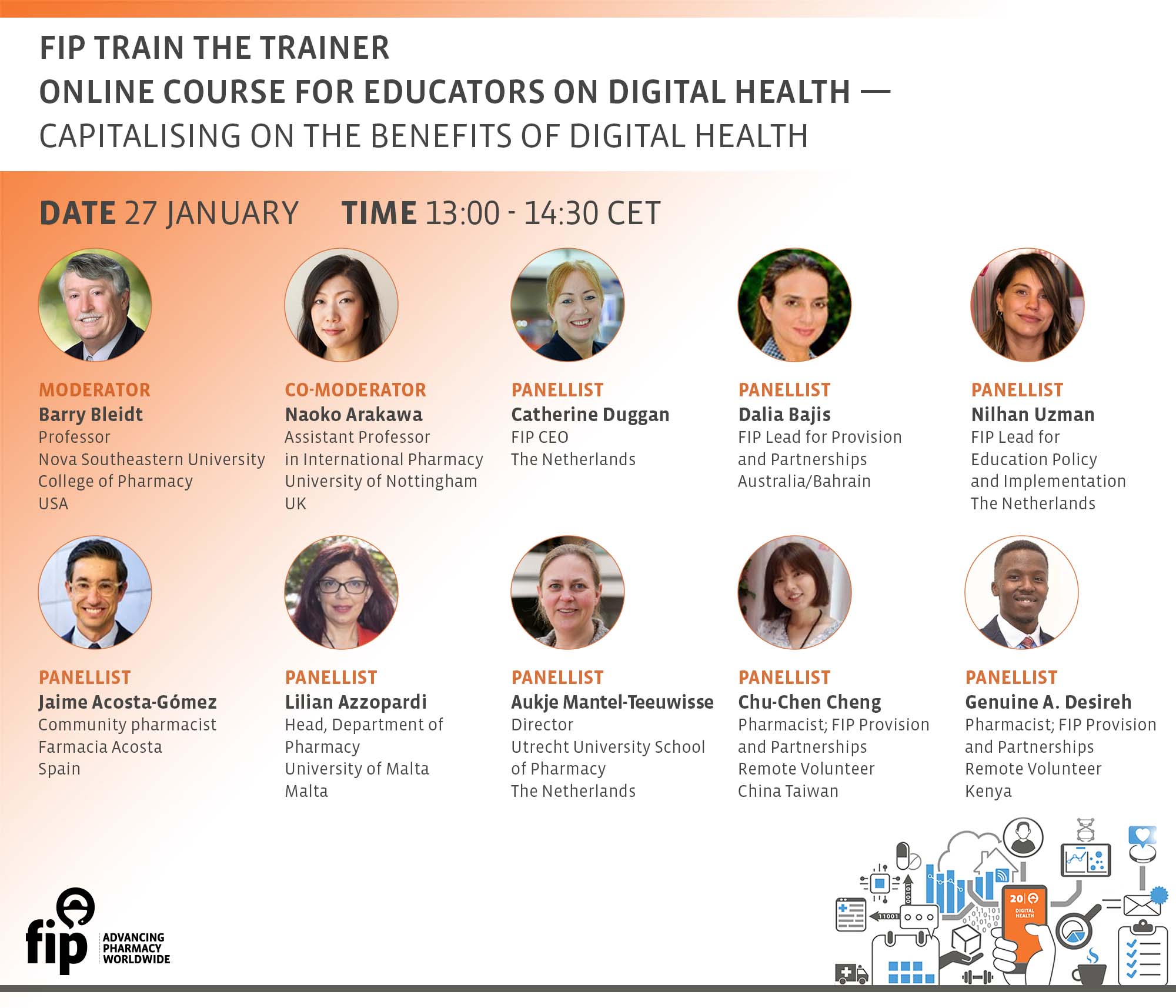
Recent technological advancements have revolutionized clinical practice, and there is need for a pharmaceutical workforce that is well-equipped to embrace, innovate, and capitalize on the benefits of digital health. Findings from the 2021 FIP report on digital health in pharmacy education revealed the need to develop courses, training material and experiential learning opportunities to prepare a digitally literate pharmacy workforce.
The Academic Pharmacy Section, supported by the FIP Provision and Partnerships programme, and many FIP constituencies led a ONEFIP project to develop the first FIP-developed online Train the Trainer (TtT) course. At this event, we will reflect on the progress made to date, launch the TtT course, which targets academics as well as educators in any sector in pharmacy, and how this initiative builds on FIP competency frameworks and reports.
Event outcomes:
1. To describe FIP’s response following the release of digital health in pharmacy education report in 2021.
2. To provide an overview of the FIP Global Platform for Provision and Partnerships.
3. To launch the FIP Train the Trainer online course on FIPx and generate interest in the course
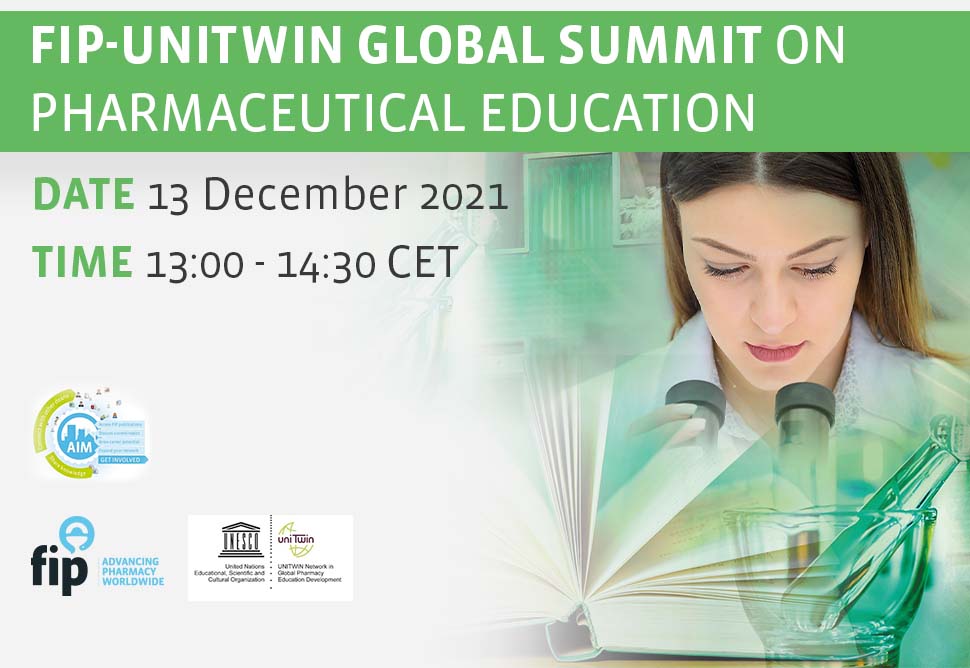
In October-2021, FIP-UNITWIN Regional Workshops brought FIP’s member academic institutions, professional organisations, key pharmacy stakeholders and guests across all regions together to co-create a roadmap to advance pharmacy and pharmaceutical sciences in their region through educational partnerships. At the FIP-UNITWIN Global Summit on pharmaceutical education, participants will;
1. Learn about their regions’ roadmap on advancing pharmacy and pharmaceutical sciences education;
2. Explore FIP’s global call to action on pharmaceutical education to support it across their regions and countries;
3. Discover country cases and next steps of the FIP-UNITWIN Centres for Excellence programme
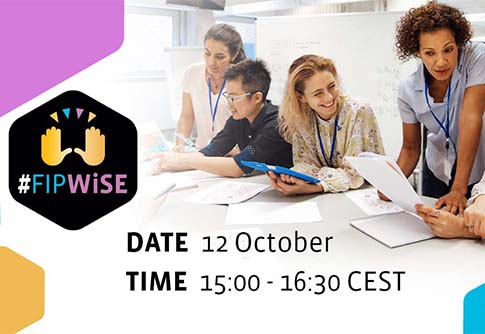
Building on World Health Professions Alliance (WHPA), Positive Practice Environments Campaign, the “FIPWiSE toolkit for positive practice environments in education & science” is developed to identify and address inequalities in the workplace environments which affects women in pharmaceutical science and pharmacy education, with transferable learnings across the pharmaceutical workforce. The toolkit is designed to raise awareness and provide possible solutions for individuals, employers and institutions that can enable positive practice environments for women in pharmaceutical science and pharmacy education.
Learning objectives:
1. Explore the key factors that enable positive practice environments for women in pharmaceutical science and pharmacy education, and the entire pharmaceutical workforce
2. Learn about practical solutions for professionals, employers and policy makers in creating positive practice environments for women in pharmaceutical science and pharmacy education
3. Discuss with the toolkit authors and high-level speakers how to take action and stand up for positive practice environments
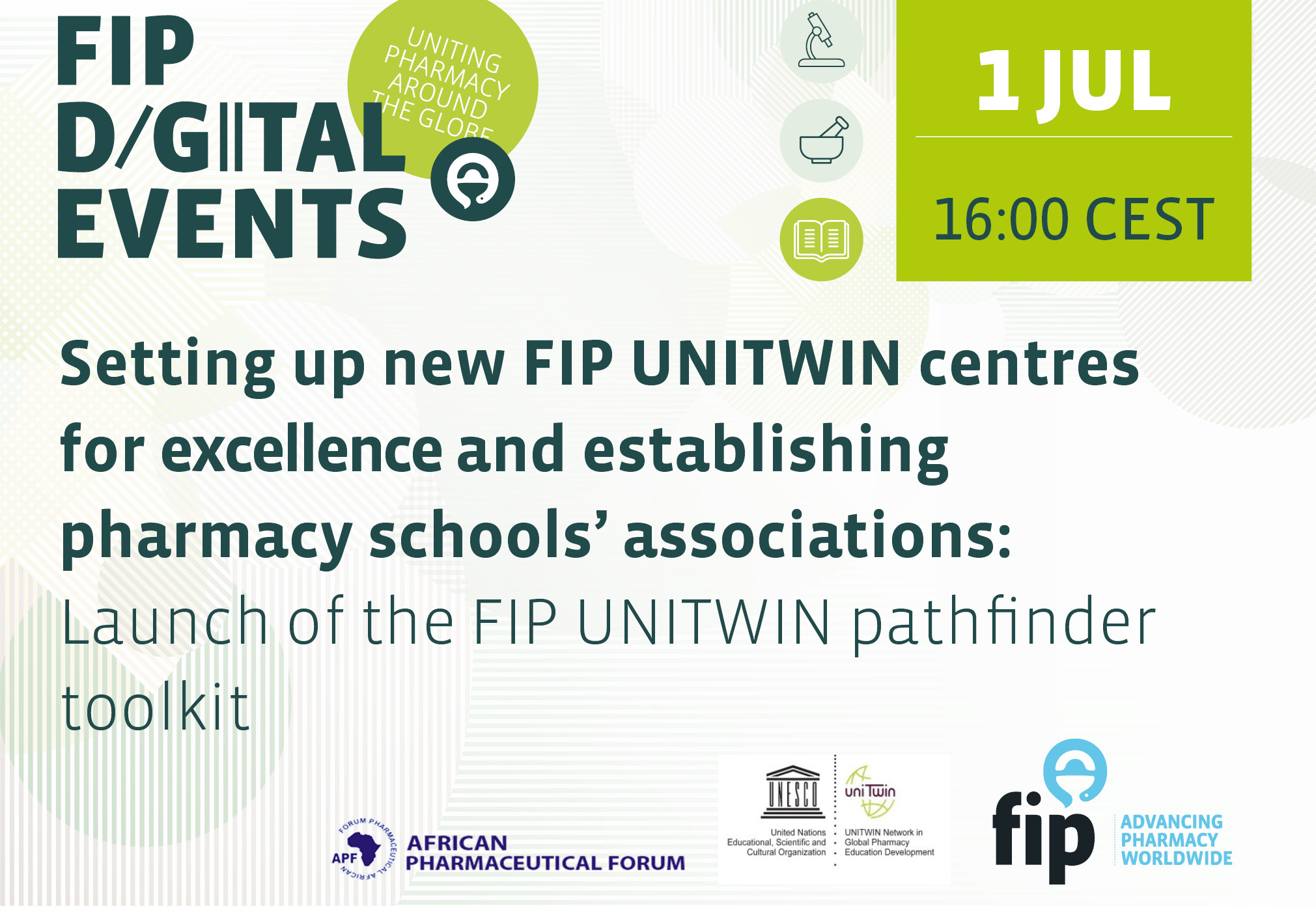
The “FIP UNITWIN Pathfinder Toolkit” is a step-by-step guide to support the global expansion of the FIP-UNESCO UNITWIN programme. It also supports academic institutions across Africa to establish an Africa-wide association of schools of pharmacy, with the leadership of African Pharmaceutical Forum and building on the experiences of similar associations around the world.
At the end of this session, participants will:
1. Learn about the FIP-UNESCO UNITWIN Programme and the value of educational partnerships
2. Share expressions of interest to join new FIP-UNESCO UNITWIN centres for excellence at their regions
3. Discuss the way forward for the establishment of an African-wide association of schools of pharmacy
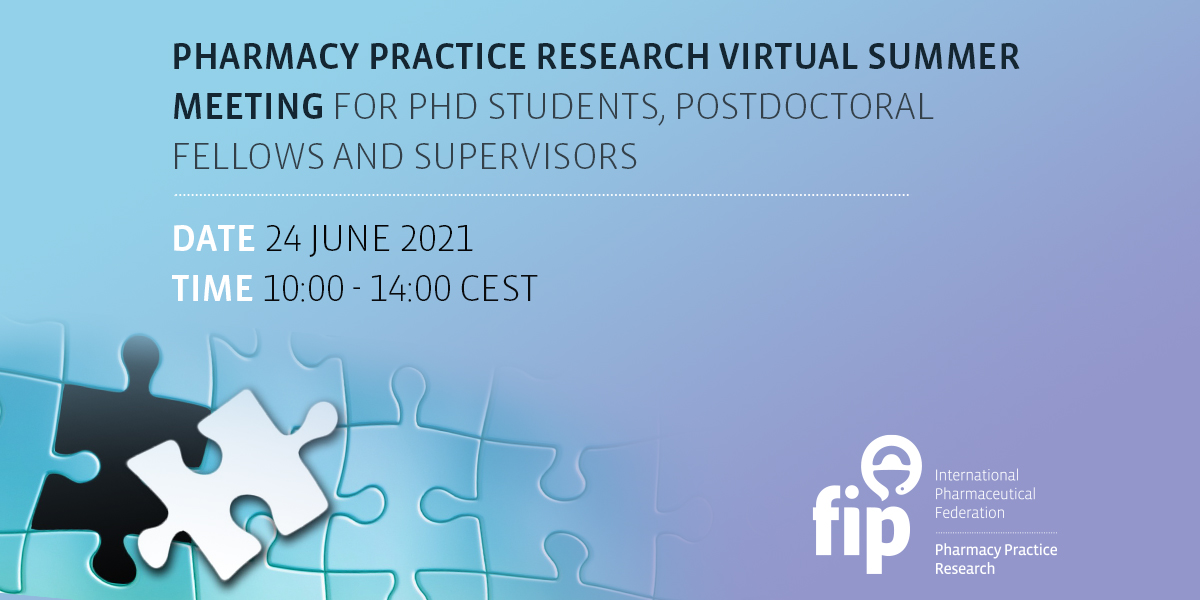
The FIP Pharmacy Practice Research SIG (PPR SIG) was created with the main scope of increasing pharmacy practice contributions to global health through the provision of greater access to the latest high-quality international pharmacy practice research. The PPR SIG also aims to cultivate an international forum for the dissemination of quality, international pharmacy practice research for all stakeholders and stimulate communication, discussion, networking, and collaboration between international pharmacy practice stakeholders.
Based on this objective, this PPR virtual summer meeting aims to increase the quality and quantity of pharmacy practice research by exchanging and disseminating information at an international level. New networks and collaborations will be established on major themes for experienced researchers and higher degree students.
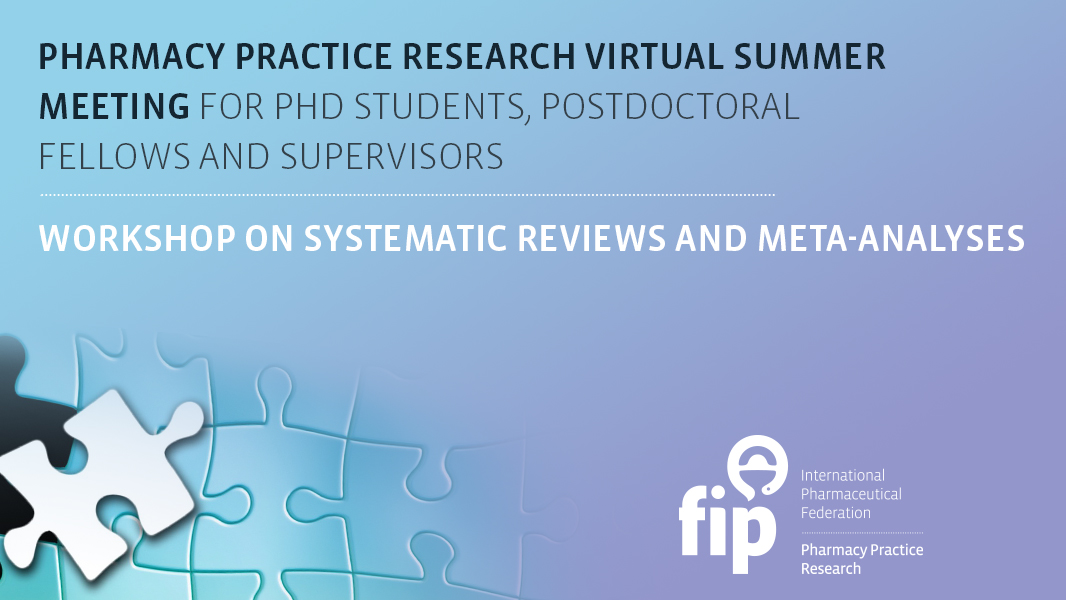
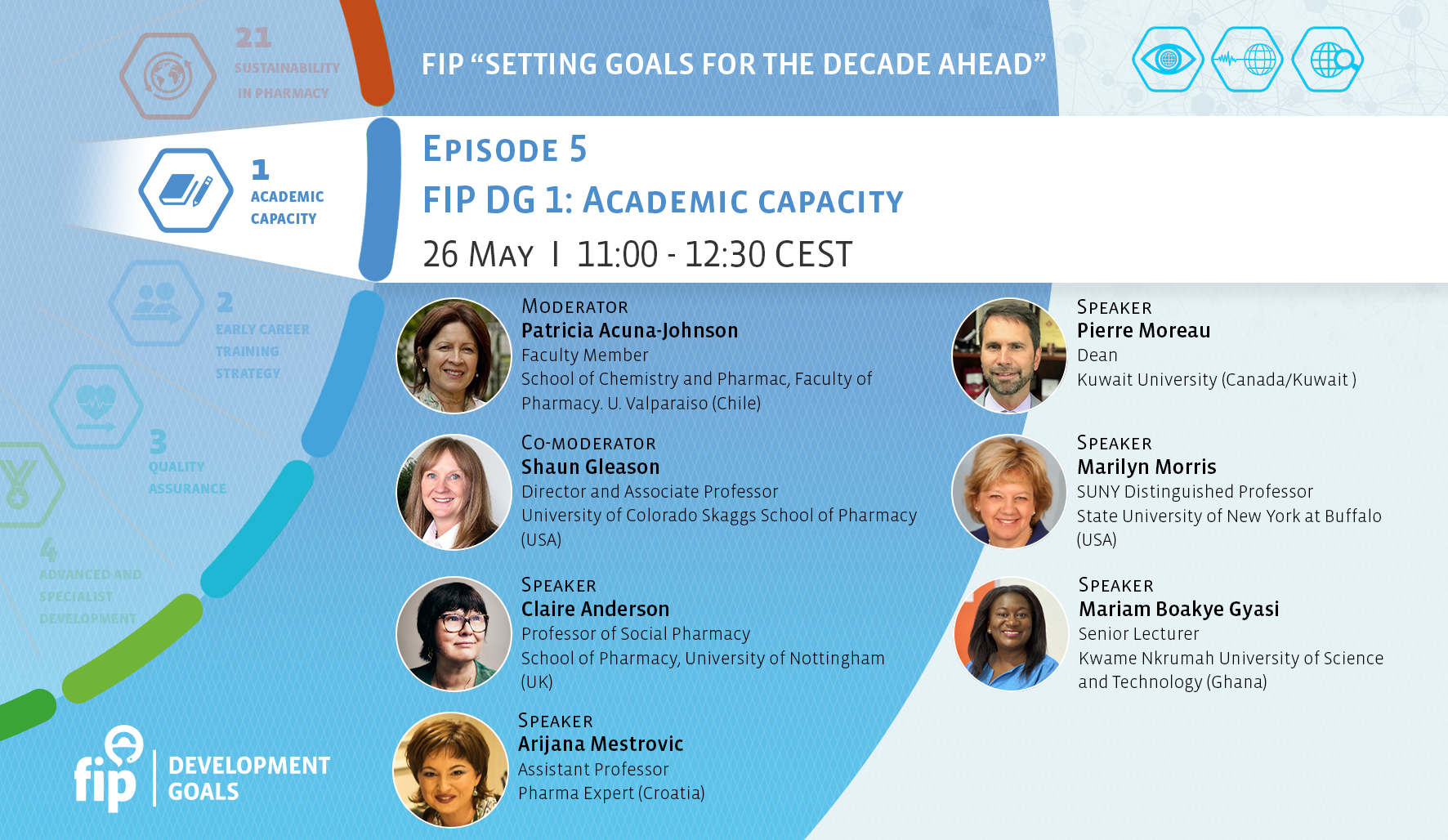
The FIP Development Goals Digital Programme “Setting goals for the decade ahead” is a comprehensive online event series providing coverage of the 21 goals over 21 events in 2021. Starting in March, the 21 digital events aim to provide description, direction and context for each specific goal, with a global plan for the decade ahead and how each nation, within each region can identify and prioritise which goals are the priorities and how the goals can support developments and transformation for them.
This programme is all about engaging the profession and supporting the profession to deliver in relevant and purposeful ways. By engaging our profession, members & colleagues everywhere with these relevant and applicable goals for the decade ahead, we can provide tools, monitoring and evaluation through data evidence, and identifying priorities across practice, science, and workforce & education.
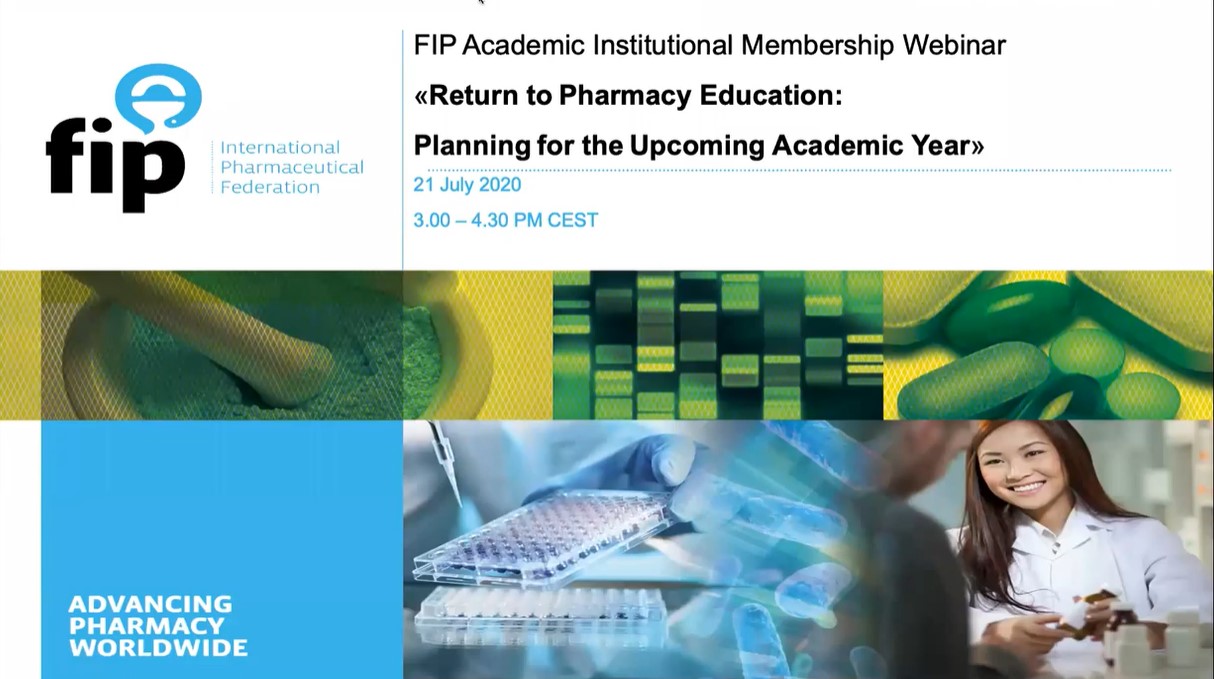
This webinar will be organized to support AIM Members Academic Pharmacy Section Members, and academic pharmacists from all around the world to plan and get prepared for the new academic year after the educational disruption by the COVID-19 pandemic. From Europe to the Middle East, different regional perspectives will be offered on reopening the schools and returning to pharmacy education for the upcoming year. The webinar will support you to start the next academic year resourcefully and resolve different challenges at your institution. The speakers will share their experience and knowledge for the ongoing preparations in their schools, and the participants will be able to ask questions to have institutional solutions for return to pharmacy education.
Learning objectives:
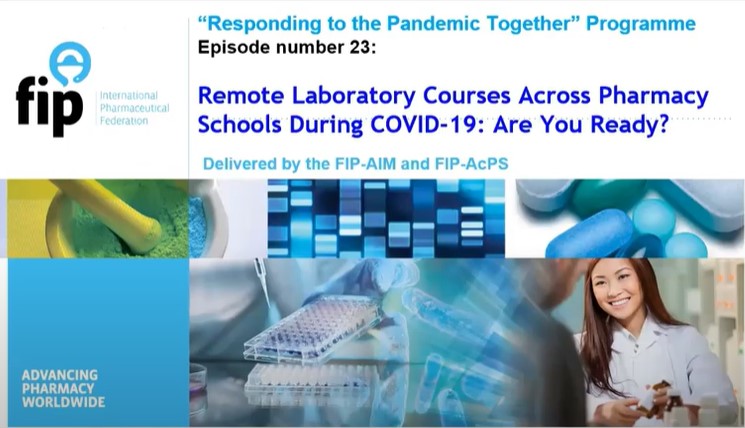
Around the globe, efforts to use technology in remote learning during COVID-19 lockdown are enormous, and different educational applications, platforms and resources are being explored. Laboratory courses constitute a unique challenge to remote instruction. The need to deliver learning outcomes of practical courses via a fully virtual experience is demanding. This activity is intended to share experience with remote learning of pharmacy laboratory courses during COVID-19 lockdown. Readiness for remote laboratory learning is crucial for pharmacy schools’ strategic planning and preparedness for any remote learning activities in the future.
Learning objectives:
1. Highlight the expertise and skills of pharmacy laboratory educators in remote laboratory instruction
2. Identify best practices for remote laboratory instruction obtained from the preliminary experience during COVID-19
3. Discuss methods of assessment of remote laboratory instruction
4. Elaborate challenges of the “new norm” of remote instruction when applied to laboratory courses
5. Remote handling of pharmacy laboratory research during out-of-lab periods
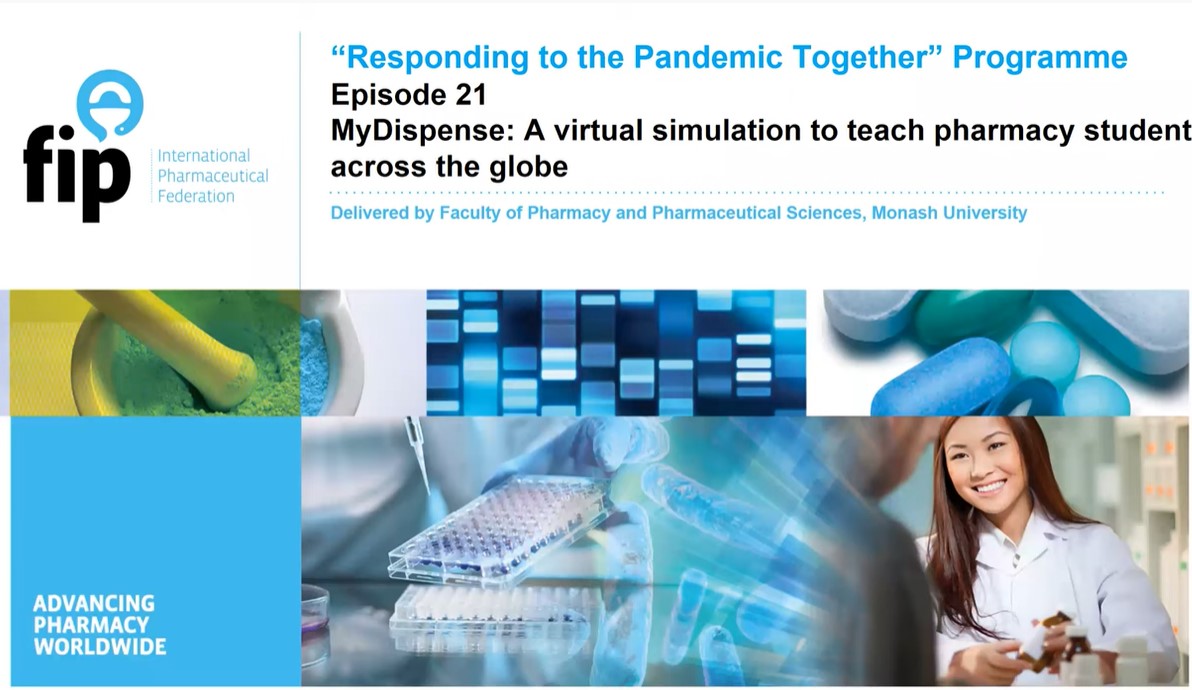
The COVID-19 pandemic has introduced new challenges to pharmacy education worldwide with a switch to online learning during these unprecedented times. A virtual pharmacy simulation, MyDispense, developed by the Faculty of Pharmacy and Pharmaceutical Sciences, Monash University, enables students to practice the skills of a professional pharmacist, in a safe virtual environment that is web-based and highly accessible. The simulation is currently shared at no cost with 120 schools of pharmacy across 22 developed and underdeveloped countries. It is used by 18,000 students worldwide with almost 800,000 exercises completed globally. The webinar will introduce the virtual pharmacy simulation, how it’s currently used to teach pharmacy students across the globe and case studies on how MyDispense is used to support online learning during COVID-19.
Learning objectives:
1. To discuss how to introduce MyDispense into the curriculum
2. To share case studies and best practice of the use of MyDispense in teaching and learning
3. To discuss challenges and rewards in using MyDispense as a teaching tool
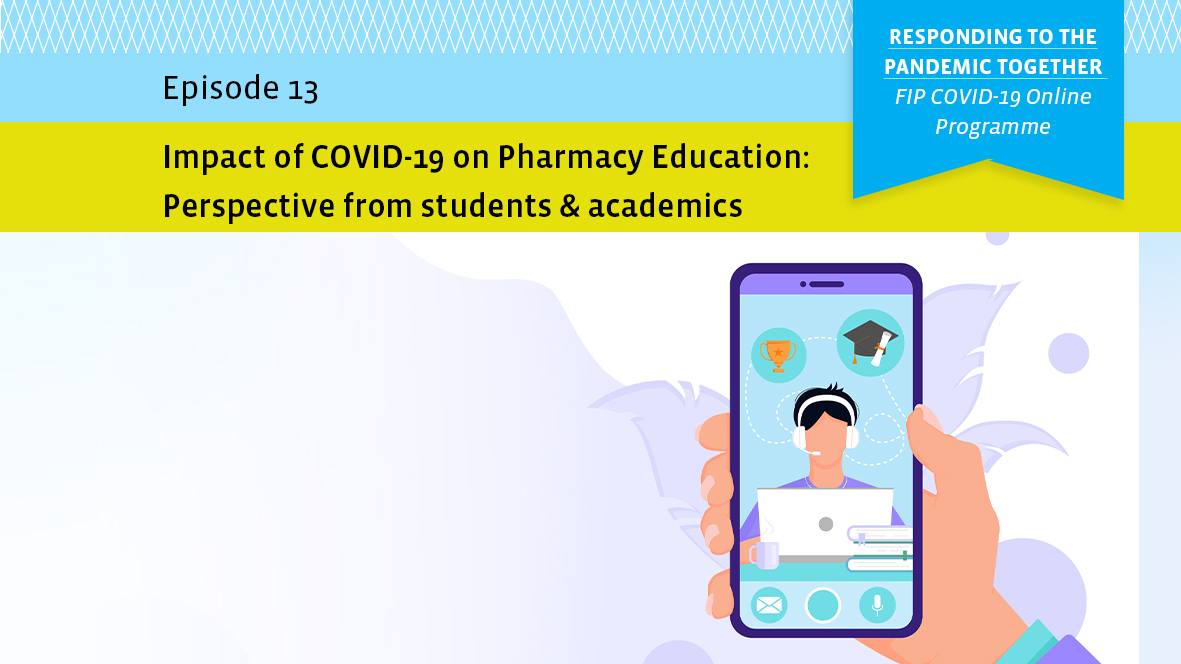
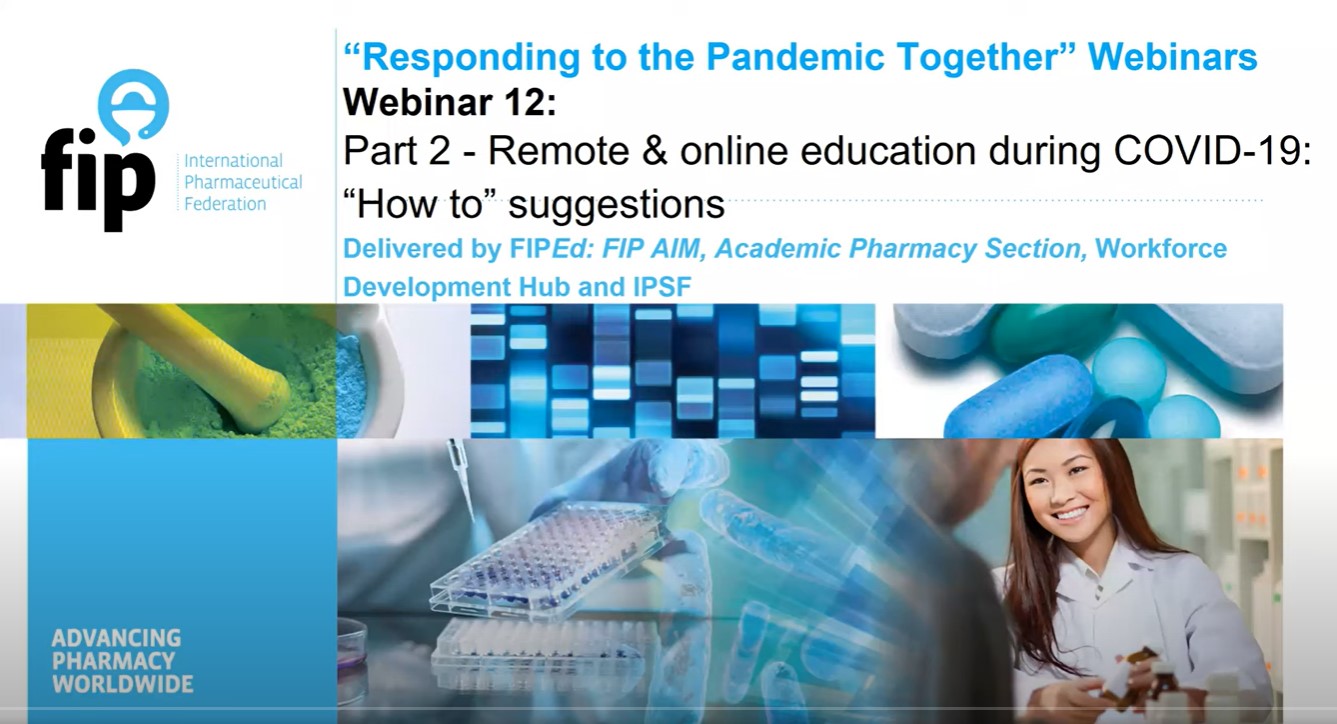
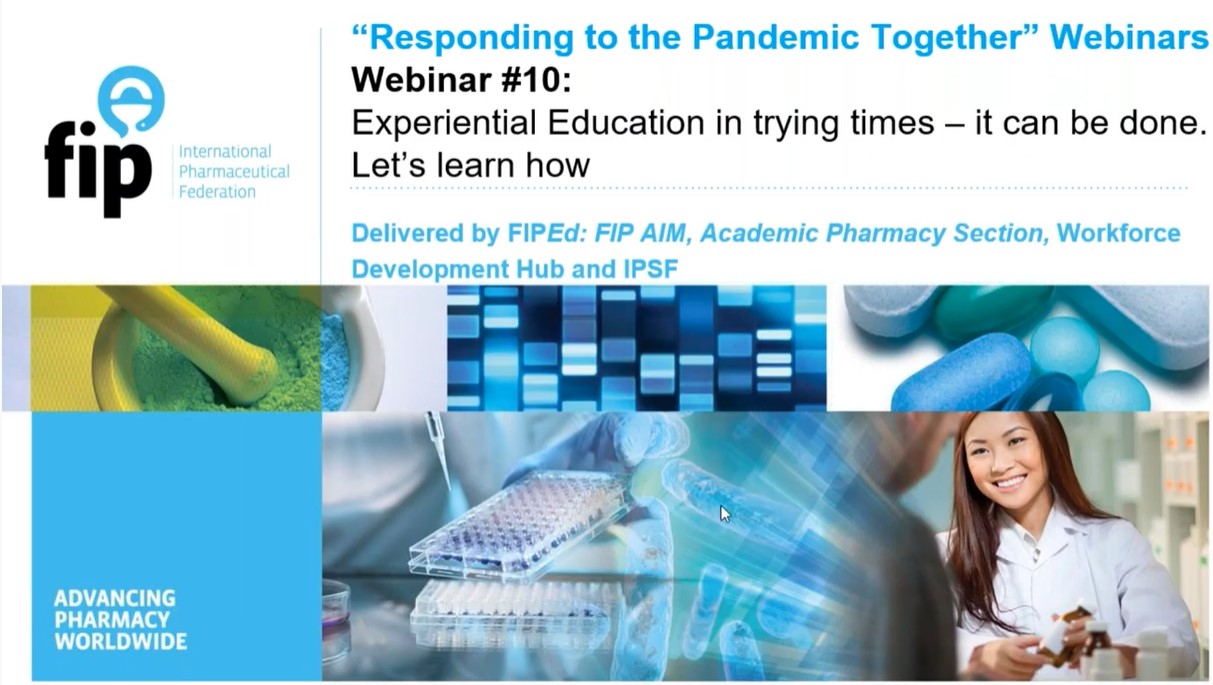
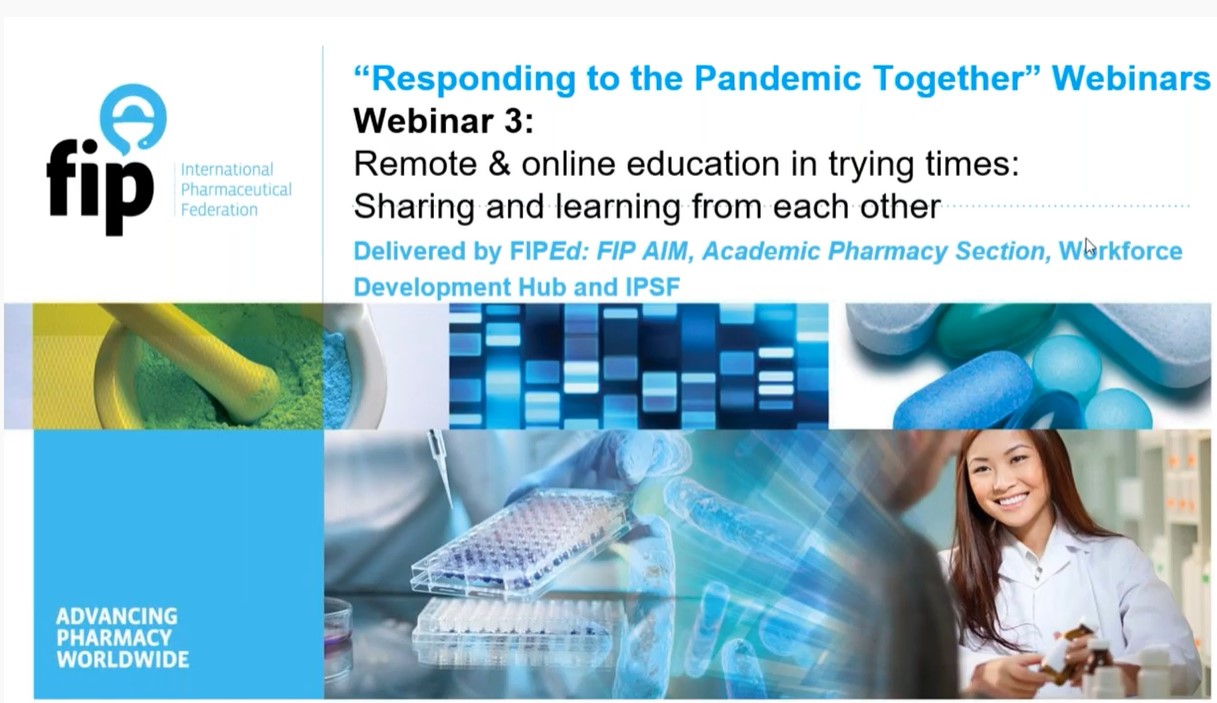
In this panel discussion, organized in collaboration between AIM, WDH, AcPS and IPSF, global colleagues will share experience in providing remote and/or online didactic education and assessment, both knowledge and skills-based. Some panelists have done so recently, in response to COVID-19, while others have been educating in this manner for several years. Significant time will be provided for a question and answer session, further allowing participants to learn from each other.
Learning objectives:
1. Discuss the differences between “remote” and “online” education and assessment, noting how each can be applied under current and future conditions;
2. Share remote and online methods to provide both knowledge- and skills-based content, and formative and summative assessments;
3. Discuss implementation tips, challenges and rewards in providing remote and online education, considering student, faculty and regional differences.
The following FIP programmes of work and structures support the implementation of this Goal:
FIPx – FIP Train the Trainer online course
FIP Academic Institutional Membership (AIM)
FIP Academic Pharmacy Section (AcPS)
FIPWiSE: Women in Science and Education initiative